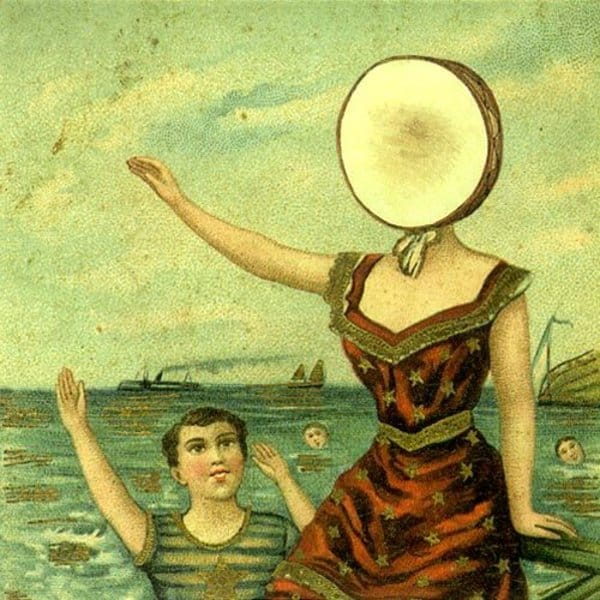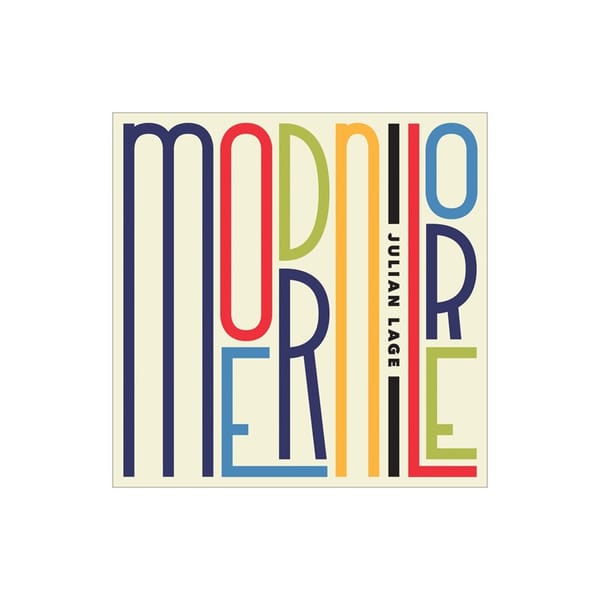Franz Ferdinand take an unprecedented sidestep
Their latest effort brings a host of sonic experimentation and a new, dancier sound from a band that no longer has anything to prove.

Always Ascending might be Franz Ferdinand’s most technically accomplished LP to date. Their first studio album since 2013, it is the most distinct evolution of their sound since 2009’s Tonight. Driving this is the addition of two new members to the band, Julian Corrie (who has released albums as Miaoux Miaoux) on keyboards and backing vocals, and Dino Bardot on guitar and backing vocals. Together they take the place of co-founder of the band, Nick McCarthy, who left in 2016.
On Always Ascending, Franz Ferdinand take McCarthy’s replacement as something of a fresh start – though that’s not to say they’ve stopped sounding like Franz Ferdinand. Like their previous work, this is still an indie rock album whose punchy basslines and funky rhythm guitar parts show a clear intention to get listeners dancing. But Always Ascending also features some of the band’s most inventive songwriting.
Sonically, Corrie’s meandering and spacey keyboard parts take a central role. Elements of disco and production from Philippe Zdar (of French house group Cassius) lend distinct sound throughout. Influence from Sparks, with whom Franz Ferdinand recorded an album in 2015, is especially evident on tracks such as ‘Lois Lane’ and ‘Huck and Jim’, which slickly transition through multiple parts, from soaring choruses to aggressively marching verses. Sifting through the unconventional structures on these songs, frontman Alex Kapranos’ sardonic lyrics push towards the ridiculous (“At the over-30s singles night it’s bleak”, “We’re going to America / we’re gonna tell them about the NHS”). It’s an ambitious and care-free approach to songwriting that sounds like the band is genuinely enjoying trying new things.
“It’s a care-free approach to songwriting that sounds like the band is genuinely enjoying trying new things”
That approach is evident elsewhere. ‘Lazy Boy’, perhaps the most typically Franz Ferdinand track on the record, grooves to a 10/4 time signature. Many of the melodies on Always Ascending were written using a keyboard that pushes the player’s fingers to unanticipated notes. The title track borrows from a practice in traditional Ethiopian music to have chord progressions that never return to their root note but instead constantly evolve. Kapranos and co. found the sonic equivalent of this in the Shepard Tone, an aural illusion of constantly increasing pitch (which you may have heard of most recently for its use in Christopher Nolan’s film Dunkirk for both the score, and as an influence on the narrative structure).
The band translate this idea of ascension into a meandering chord progression played over the Shepard Tone, and Kapranos’ meta, punning lyrics “The shepherd misleads so you think you’re transcending.” In this instance, Kapranos veers dangerously close to trying too hard to sound clever, but, as with several other tracks on the album, is spared by the plucky instrumentation that reminds us that this is pop, not poetry.
“The title track borrows from a practice in traditional Ethiopian music”
That said, two of the best tracks on the album, ‘The Academy Award’ and ‘Glimpse of Love’ are those in which the lyrics’ social commentary is most astute. The first, a gentle acoustic ballad that appears midway through the album, sees Kapranos mocking self-obsessed, social-media culture: “There’s a camera held in every hand / The glamour of applause in every mind / but the Academy Award for good times goes to you.”
The lyrics to ‘Glimpse of Love’ juxtapose lines from tabloid papers’ comments about female celebrities’ bodies over a wonderfully retro, catchy synth riff (“A glimpse of perfect abs / In a flimsy floral dress / Shows off her slender frame / Enjoys a private stroll”). In doing so, Kapranos exposes the predatory nature of such comments as the product of a search for some true emotion, a glimpse of love: “Love is gonna come as a photographer.”
Kapranos claims that the lyrics on this album emerged from trying to write from the emotional state of detailed characters he created with bassist Bob Hardy. As he steps into these personas, he further plays the character of frontman, perhaps due to McCarthy’s absence, and ventures lower into his vocal range, in which he is arguably now more comfortable, with perceptible confidence.
Yet for all that is new on this album, some of the best songs are those in which the band’s newfound adventurousness is contained. Equally there are a few tracks which are somewhat lackluster, like ‘Paper Cages’, ‘Finally’ and closer ‘Slow Don’t Kill Me Slow’. These are not bad songs, but are the clearest representation of Always Ascending ’s biggest flaw: while offering refreshing song ideas and proving that they are technically able to execute them, Franz Ferdinand fail to nail the razor-sharp tightness and ability to self-edit that made their earliest material such great pop-rock. At the other extreme, the experimentation on this album is rarely sufficiently seen through in terms of captivating, thought-provoking or emotional lyrics. A number of the cuts on this record simply feel a little too drawn out or unremarkable for it to be truly excellent. That might not be as disappointing as sounds, though, as Always Ascending remains a solid album that will add some of the most interesting material to Franz Ferdinand’s excellent live back-catalogue.
4 Stars
Artist: Franz Ferdinand. Label: Domino. Top Tracks: Always Ascending; Lazy Boy; The Academy Award; Glimpse of Love. For Fans Of: Arctic Monkeys; The Strokes; Sparks. 40 minutes








